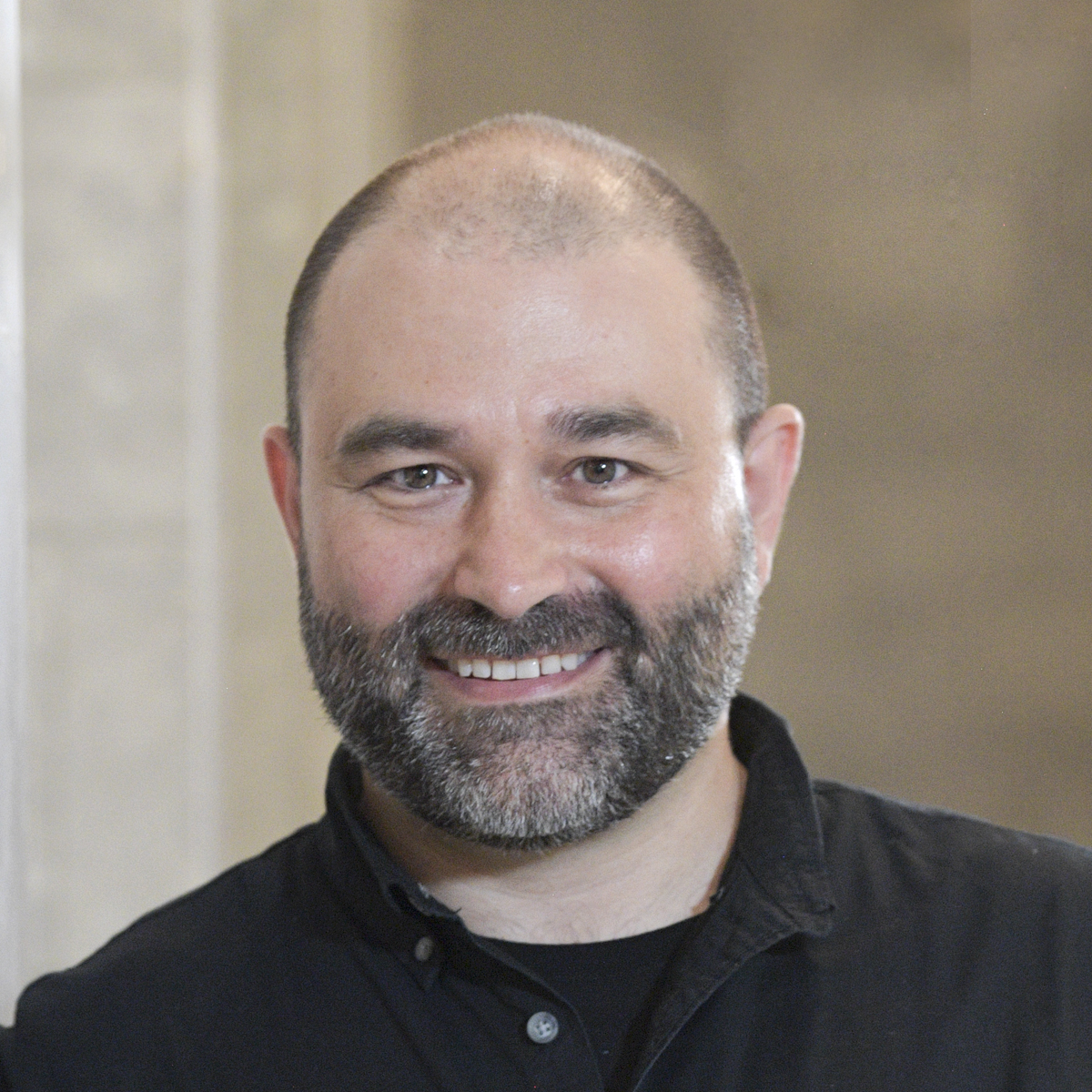November 24 2022
Two-year operating grants
Two-year operating grants support artistic research, creation, production and presentation and the realization of professional artistic activities by providing stable and comprehensive financial assistance. Offering recurring funding over a two-year period, the program enables arts organizations to fulfil their mandates.
Two-year operating grants
Introduction
IMPORTANT NOTE
Please note that the application deadline is 5:00 p.m. on November 24, 2022. The organization must ensure that it has a complete and up-to-date profile on ORORA prior to applying.
This call is not open to organizations currently receiving a two-year or four-year operating grant under the General Funding Program of the Conseil des arts de Montréal.
This call is reserved for organizations that are not currently receiving a two-year or four-year operating grant under the General Funding Program of the Conseil des arts de Montréal AND meet the eligibility requirements.
The organization files a single application per two-year period. No additional applications for a two-year operating grant may be filed in the second year of the funding cycle.
An organization receiving a two-year operating grant may not submit project grant applications under the General Funding Program of the Conseil des arts de Montréal at any point in the two-year funding cycle. However, applications may be presented for other Conseil programs and initiatives.
Organizations with a double mandate file a single application but must meet the relevant eligibility requirements specific to each mandate.
Who is eligible to apply?
Professional arts organizations that have received two project grants under the Conseil’s General Funding Program within the past five years.
What are the program objectives?
This program supports artistic research, creation, production and presentation and the realization of professional artistic activities and/or services that improve artists’ working conditions by providing stable and comprehensive financial support. Offering recurring funding over a two-year period, the program enables arts organizations to fulfil their mandates.
Support
What type of assistance is provided?
The Conseil’s assistance was created to provide organizations with greater financial stability in order to facilitate the planning and management of their core activities.
What is the duration of the support?
The two-year operating grant covers a two-year period determined by the dates of the organization’s fiscal year.
The funding amount may vary during the cycle, as follows:
- It may increase or decrease depending on the Conseil’s financial capacity.
- It may decrease pursuant to the Conseil’s Withdrawal of Support Policy.
Eligibility
What types of projects are eligible?
- Research and/or creation-production
- Specialized or multidisciplinary presentation
- Publication of cultural magazines
- Production of an event or festival
- Production support
- Projects carried out by a museum
- Projects carried out by an association, umbrella group or service organization
For organizations with a double mandate:
- Creation-production and presentation
- Creation-production and festivals/events
- Presentation and festivals/events
- Presentation and production support (visual arts, digital arts, film/video)
Organizations whose double mandate does not appear in the list above are invited to contact the advisor responsible for their sector.
What are the general eligibility conditions?
Status and requirements
- Be a non-profit organization or non-profit artists’ cooperative that does not pay dividends
- Have its head office on the Island of Montréal
- Have a board of directors whose members are mainly Canadian citizens or permanent residents of Canada
- Its main mission must be artistic research, creation, production or presentation and/or its mandate must primarily involve bringing together and representing artists and/or cultural workers in a specific artistic discipline or multidisciplinary sector.
Professionalism
- Possess recognized and demonstrable expertise
- Be managed by qualified individuals
- Have a stable artistic direction
- Present activities of acknowledged artistic quality
- Bring together, represent or employ professional artists and/or cultural workers
What are the special eligibility conditions?
- Have received at least two one-time project grants under the General Funding Program between January 1, 2018 and October 30, 2022
- Generate a significant volume of activity for the discipline or sector
When must the activities be carried out?
The organization must carry out its activities according to the provisional schedule set out in the application.
How many applications will be approved?
The number of applications approved by the Conseil varies depending on the number of applications received, its evaluation of the interest and merit of the proposed artistic activities and its financial capacity.
Who is ineligible to apply?
Ineligible applicants
- Organizations that do not meet the general and specific eligibility requirements
- Individual artists
- Artists’ collectives
- Cultural magazines published less than three times a year or distributed free of charge
- Organizations currently receiving two-year or four-year operating grants under the Conseil’s General Funding Program
- Organizations that have not filed the final report(s) for one or more projects funded under the Conseil’s General Funding Program
- Organizations legally constituted as partnerships or limited partnerships
- Public or para-public organizations representing governments or municipal bodies
- Organizations that, in certain specific cases, receive funding or fulfil a mandate for the City of Montréal for their presentation activities
Ineligible sectors of activity
- Organizations dedicated to teaching, education and/or professional training
- Organizations or cooperatives working exclusively in variety, arts or comedy
- Organizations or cooperatives working exclusively in cultural mediation
Ineligible applications
- Incomplete applications
- Applications received after the deadline
Ineligible applications will not be considered by the evaluation committee.
Accessibility
Can specific populations receive additional financial support to submit their application or complete their project (accessibility costs)?
Yes. Accessibility costs refer to costs that certain individuals, particularly those who are D/deaf and/or living with a disability, must pay to take advantage, in the same way as others do, of the services and programs offered by an institution for research, to create, produce or disseminate their art. Reimbursement of part of these costs by the Conseil des arts de Montréal may offset the financial disadvantage.
The Support Fund for Accessibility Costs is a financial assistance measure that complements the Conseil’s other programs. The deadline to apply for support for accessibility costs is the same as that for the program being applied to.
Artists, collectives or organizations that have obtained financial assistance from the Conseil to carry out a project can also file an application for accessibility cost support up to three months after the decisions related to the successful project have been sent out, provided the project is not completed before the deadline to send out decisions for accessibility cost support applications.
Support is divided into three components:
- component 1 – Financial support to submit a grant application or to apply for one of the Conseil’s initiatives
- component 2 – Financial support for accessibility costs for a project funded by the Conseil
- component 3 – Financial support for presenter organizations for accessibility costs to welcome audiences for a project funded by the Conseil
For more details, please see this additional information on the Support Fund.
Applications
Who should file the application?
The person responsible for the organization’s activities (administration, management) and/or designated by the board of directors.
What information and documents should be included in the application?
In addition to the form available on the ORORA platform, the detailed description of activities and the budget, the following documents must be included:
- Financial statements from the last full fiscal year, signed by two members of the board of directors
- The organization’s letters patent (including all pages), if any changes have been made
- The organization’s constitution and bylaws, if any changes have been made
- Press kit or review (short version)
- List of links to excerpts or complete versions (depending on the discipline) of works or activities relevant to the application (maximum of four links)
- If desired, a personal appendix (presented as a single PDF document) containing any documents that you feel are relevant. They must not however include any information that is essential for the purpose of assessing your application.
NB:
The organization must ensure that it has a complete, up-to-date profile on ORORA prior to applying.
How can I submit an application?
Most of the applications to the Conseil des Arts de Montréal will progressively be submitted through the ORORA online application portal.
Evaluation
How are applications evaluated?
With the help of peer evaluation committees in each sector, the Conseil evaluates all applications on the basis of merit and awards grants according to the available budgets.
What happens if the application for a two-year operating grant is not recommended by the peer evaluation committees?
An organization whose application for a two-year operating grant is not recommended by peer evaluation committees may request, for the purpose of this call, an evaluation based on the Project Assistance requirements and standards under the General Funding Program. In this event, a summary description of the project and the requested amount for its realization must be submitted with the application. When it selects project-based evaluation with its application for a two-year operating grant, the organization may not file another application for a project grant under the General Funding Program in 2023. If the organization is awarded a project grant, the financial assistance provided by the Conseil shall be one-time and non-recurring.
What are the evaluation criteria?
There are two categories of evaluation criteria:
- Evaluation based on the organization’s mandate
- Evaluation based on the Conseil’s impact-related strategic priorities
Why are there mandate-based criteria?
Organizations first undergo mandate-based evaluations by sector evaluation committees, based on the following evaluation criteria and their weighting:
What are the evaluation criteria for research and creation-production mandates?
Artistic merit: 60%
- Strong and original artistic vision
- Clarity and merit of the organization’s mission, artistic orientations and positioning within the community ecosystem
- Artistic quality and originality of the organization’s past initiatives and proposed projects
- Consistency of activities with the organization’s mandate and artistic orientations
Organization’s audience outreach and contribution to sector development: 20%
- Effectiveness of the organization’s outreach strategies targeting Montréal audiences
- Significant presentation and dissemination of works locally, nationally and internationally
- Significant impact of activities on artists, audiences and partners (compensation, support, audience loyalty, collaboration with partners, etc.)
Management and administration: 20%
- Organization’s ability to effectively manage its activities and complete its projects
- Demonstration of a stable and balanced financial position
- Organizational health and good governance
- Diversification of funding sources
What are the evaluation criteria for the mandates of professional associations, umbrella organizations and service organizations?
Mission and mandate fulfilment: 40%
- Quality and consistency of activities or services with the organization’s mission and orientations
- Number of members or clients served
Contribution to the discipline and to arts communities: 40%
- Organization’s contribution and impact on the development of its community ecosystem
- Ability to provide support and/or services geared to the needs of the community or communities served
- Efforts made to improve the working and socio-economic conditions of artists in the relevant discipline or sector
- Ability to engage members, work in cooperation with communities and create meaningful partnerships
Management and administration: 20%
- Organization’s ability to effectively manage its activities and complete its projects
- Demonstration of a stable and balanced financial position
- Organizational health and good governance
- Diversification of funding sources
What are the evaluation criteria for the publication of cultural magazines?
Artistic merit: 65%
- Clarity and merit of the organization’s mission and magazine’s positioning within the discipline and the community ecosystem
- Strong and original editorial vision
- Quality, interest and consistency of the choice of authors and texts published with the organization’s mission and editorial vision
- Quality and consistency of the organization’s artistic direction with its mission and editorial vision
Magazine reach: 20%
- Contribution to and impact on the development of its community ecosystem, its actors and its practices
- Contribution to audience development in relation to discipline practices
- Ability to establish partnerships with the community
- Quality and effectiveness of the strategies implemented to reach readers, build loyalty and develop and renew readership
Management and administration: 15%
- Organization’s ability to effectively manage its activities and complete its projects
- Demonstration of a stable and balanced financial position
- Organizational health and good governance
- Diversification of funding sources
What are the evaluation criteria for the mandates of festivals, events and specialized and multidisciplinary presenters?
Quality and impact on artistic development: 60%
- Strong and original artistic direction
- Clarity and merit of the organization’s mission, artistic orientations and positioning within its community ecosystem
- Quality, interest and consistency of programming in regard to the organization’s mission, artistic orientations and resources
- Quality of the artist or organization’s reception and the effort made to purchase performances at guaranteed fees
- Efforts made to open a dialogue and meet with representatives of different disciplines (for multidisciplinary organizations)
Organization’s contribution to the development of its community ecosystem and impact on audiences: 20%
- Organization’s contribution to and impact on the development of its community ecosystem
- Strategies implemented to reach audiences
- Ability to reach audiences, build loyalty and develop and renew audiences
- Impact of mediation, communication, marketing, promotion and advertising efforts
Management and administration: 20%
- Organization’s ability to effectively manage its activities and complete its projects
- Demonstration of a stable and balanced financial position
- Organizational health and good governance
- Diversification of funding sources
Why are there criteria based on impact-related strategic priorities?
These criteria are based on the priorities identified by the arts communities consulted during development of the Conseil des arts de Montréal’s Strategic Plan 2022–2025, as well as on key factors contributing to the vitality of the arts community. They apply in addition to the mandate-specific evaluation criteria. In this way, the Conseil aims to recognize the contributions of organizations to its priorities by increasing its support to organizations making notable contributions, specifically in relation to its strategic priority focusing on impact. Based on its mission, the nature of its activities, its history and other considerations, every organization should find ways in which one or more of the strategic directions targeted by this bonus apply to it.
There are three impact categories: equity and representation, proximity and environmental stewardship.
What are the criteria based on the strategic priority of equity and representation?
- Significant involvement of historically underrepresented cultural workers in key artistic and administrative posts
- Significant involvement of women in key artistic and administrative posts
- Promotion of historically underrepresented artistic practices
- Development of fair and inclusive practices involving audiences
- Attention paid to intergenerational relationships and knowledge sharing
What are the criteria based on the strategic priority of proximity?
- Promotion of local initiatives
- Desire to become part of the lives of artists and Montréal communities
- Rewarding collaboration with key local actors (cultural and/or community-based, municipal, healthcare, education, social economy, etc.)
- Enhancement of local cultural offerings in neighbourhoods, boroughs and/or cities on the Island of Montréal
- Creation of strong, lasting ties with the residents of neighbourhoods, boroughs and/or cities on the Island of Montréal
What are the criteria based on the strategic priority of environmental stewardship?
- Environmentally responsible transition
- Integration and implementation of environmentally responsible practices
- Development of practices encouraging the sharing and pooling of tools, resources and knowledge
Bonus based on impact-related strategic priorities
The evaluation points attributed on the basis of the Conseil’s impact-related strategic priorities are added to the mandate-based score determined by the peer committees. Totalling a maximum of six points, the bonus is broken down as follows:
- Fairness and representation Maximum of 3 points
- Proximity Maximum of 2 points
- Environmental stewardship Maximum of 1 points
What is the response time?
The Conseil will process all applications and reach a decision within 12 to 14 weeks of the application deadline.
How will I be informed of the decision?
The organization’s representative will receive an email invitation to view the results on the ORORA platform. No decisions will be announced by telephone.
Can I appeal the decision?
The Conseil’s decisions are final and not subject to appeal. However, Conseil staff are available to answer any questions regarding its decisions.
Applicants agree not to communicate with members of the evaluation committees or the Conseil’s Board of Directors at any time regarding the management or evaluation of their application or decisions related to their application.
Payment
How will the grant be paid?
The grant is paid annually, in two instalments:
First instalment
Year 1: 90%, after the Conseil sends the decision letter
Year 2: 90%, on the Year 1 instalment anniversary date
Second instalment
Year 1 and Year 2: Following the Conseil’s receipt and acceptance of the final report for the organization’s last full fiscal year and its financial statements signed by two Board of Directors members
Obligations
Commitments
For the organization, accepting payment of the grant constitutes an undertaking to complete the activities covered by the grant and to comply with the accompanying requirements, which will be communicated upon approval of the application.
The organization agrees to:
- Carry out its activities as planned
- Notify the Conseil of any major changes to its mandate, management leadership or activities
- Submit the required activity and financial reports within four months of the end of its fiscal year
- Meet certain special requirements regarding use of the grant, if applicable
- Publicly acknowledge the Conseil des arts de Montréal’s contribution by reproducing the Conseil’s logo in its programs, brochures, flyers and other promotional materials (see the Visibility section, below)
- If desired, include in the final report photographs, videos or any other relevant, royalty-free visuals that the Conseil may use for promotional or archival purposes
In addition, the organization undertakes not to contact members of the evaluation committees or the Conseil’s Board of Directors at any time regarding the management or evaluation of its application or regarding decisions related to its application. Only Conseil staff are authorized to answer questions.
The Conseil’s financial commitment may be suspended or modified if:
- An organization ceases its activities
- A change not approved by the Conseil is made to the organization’s artistic direction, artistic mandate or activities
- The organization’s activities or progress are deemed to be unsatisfactory upon receipt of the final reports
- An organization operating at a loss accumulates a deficit equal to 10% or more of its total revenue
Visibility Standards and Logos
Arts organizations, collectives or individual receiving grant from the Conseil must mention this funding in their information, promotional, or advertising material.
Need more information?

Marie-Michèle Cron

Philippe Gendreau

Roxanne Robillard
514 280-3389
roxanne.robillard@montreal.ca
Dominic Simoneau
Bring the arts to life
All newsNews categories


